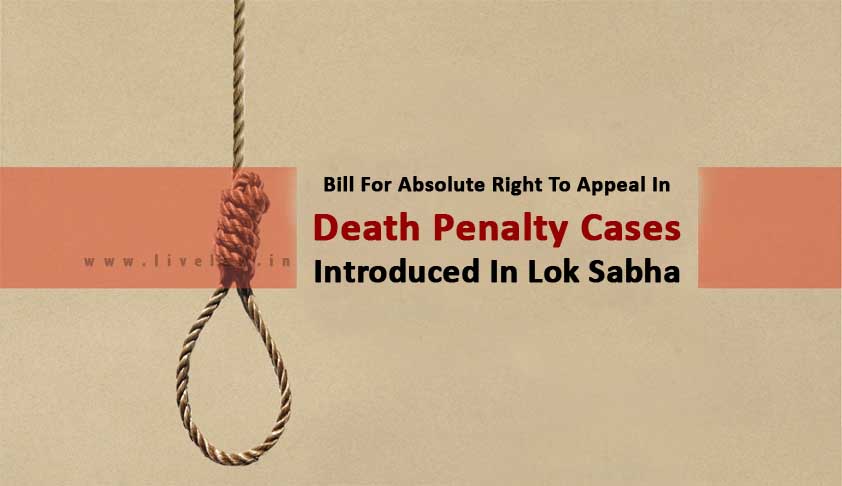Bill For Absolute Right To Appeal In Death Penalty Cases Introduced In Lok Sabha
Apoorva Mandhani
11 March 2017 7:37 PM IST

Next Story
11 March 2017 7:37 PM IST
A private member bill, 'The Constitution (Amendment to Article 134) Bill, 2017', to ensure natural and unrestricted right to appeal in the Supreme Court in all cases of death penalty, was introduced in the Lok Sabha on Friday, by Member of Parliament, Mr. B. Vinod Kumar.“Through this Bill, my intention is to ensure that every convict, who has been awarded death sentence by the lower court...
